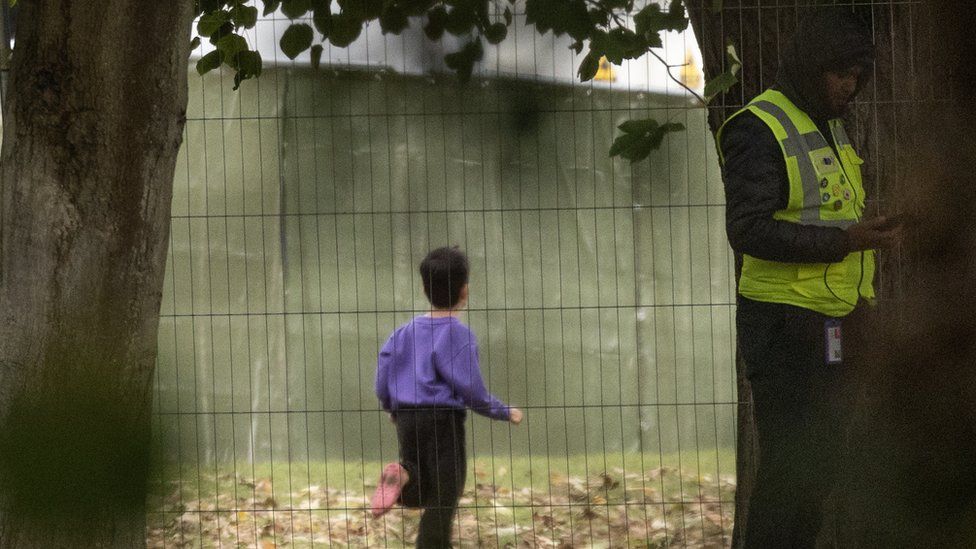ARTICLE AD BOX
 Image source, Getty Images
Image source, Getty Images
By Paul Seddon
Politics reporter
The House of Lords has voted against government plans to weaken detention limits for children and pregnant women in its migration bill.
The legislation would scrap existing legal caps on how long they can be held ahead of being removed from the UK for arriving illegally.
But peers voted to preserve the current protections in a series of amendments.
They also voted to ban the deportation of LGBT migrants to nations including Rwanda.
The proposed changes are among 11 defeats suffered by ministers on the Illegal Migration Bill in votes on Monday evening.
They can be overturned when the bill goes back to the House of Commons, where - unlike in the Lords - the government has a majority.
But it raises the prospect of another clash between ministers and Tory backbenchers over contested aspects of the legislation.
The bill, backed by MPs in March, is central to Prime Minister Rishi Sunak's high-profile pledge to "stop" small boats crossing the English Channel.
It would place a legal duty on the government to detain and remove those arriving in the UK illegally, either to Rwanda or another "safe" third country.
The government says it is committed to its plan to remove migrants to Rwanda, despite the Court of Appeal ruling last week it was unlawful. It has already said it will appeal the decision at the Supreme Court.
There has been concern about how children will be treated under the new migration bill, as well as accusations that existing UK regulations to prevent modern slavery would be undermined.
Although the new bill would not oblige the government to deport child migrants until they turn 18, it would create powers for ministers to do so.
It would also get rid of the current three day-limit on how long children and pregnant women can be detained, as well as the 24-hour maximum for children unaccompanied by an adult.
The government argues detention powers are necessary to ensure migrants destined for removal do not "disappear into the community" - and says no one would be held longer than is "absolutely necessary" to ensure they are deported.
It adds that there is also an over-arching legal duty to ensure the length of detention is "reasonable", adding that leaving the UK voluntarily will "always be an option for all".
However in series of votes on Wednesday, a handful of Conservatives teamed up with opposition peers to preserve the detention limits.
Tory peer Baroness Mobarik, who proposed the amendments, said "verbal assurances" from ministers were not enough and "necessary safeguards" had to be added to the bill itself.
"The psychological harms of detention on young children is significant and likely to impact them for the rest of their lives," she added.
Immigration Minister Lord Murray of Blidworth said safeguards were already in place for the detention of pregnant women, whilst those in the later stages of pregnancy would be released on immigration bail.
LGBT removal ban
Child detention was also a contentious issue when the bill was debated in the Commons, with the government avoiding a showdown with Tory rebels by promising to listen to concerns.
Tim Loughton, who spearheaded the rebellion, said at the time he wanted a maximum limit to remain.
In other votes on Monday, the Lords voted to ban deportations of LGBT migrants to 10 mainly African countries, including Rwanda, Nigeria and Kenya - with a specific ban on trans men and women being deported to Brazil.
When the proposed bans were initially debated last week, Crossbench peer Lord Etherton, who suggested them, said the countries were "hostile and unsafe" for LGBT people.
Peers also approved an amendment to retain the role of the courts in deciding what a "reasonable" length of detention is - striking down new powers in the bill that would allow ministers to decide.

 1 year ago
21
1 year ago
21








 English (US)
English (US)